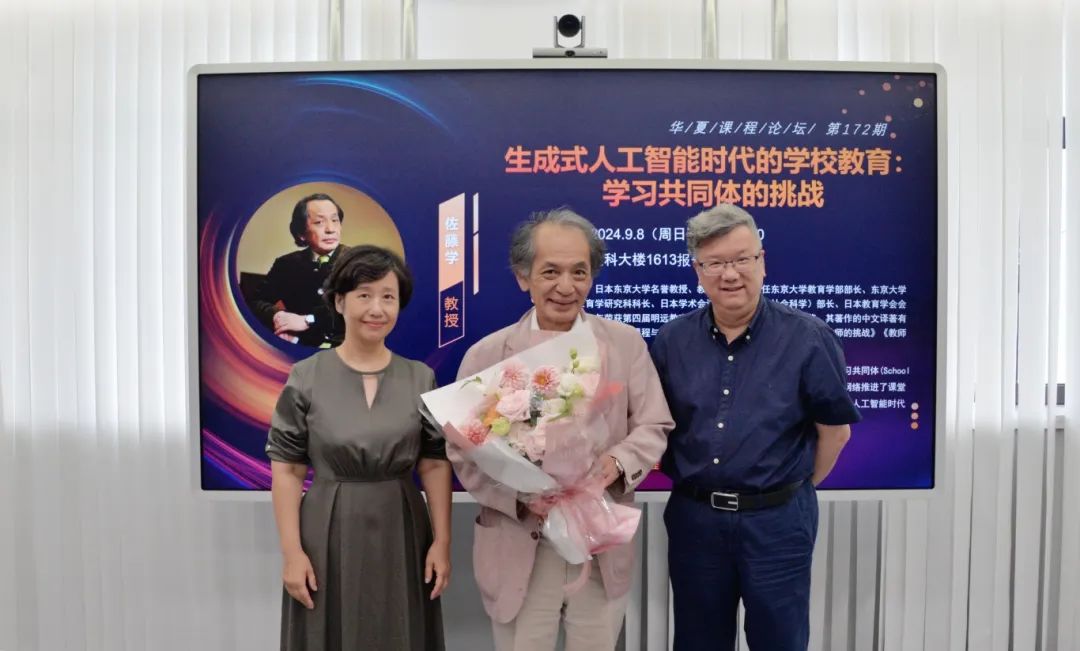ICI HuaXia Curriculum Forum║Professor Manabu Sato shares views on school education in the era of generative artificial intelligence
2024-09-10
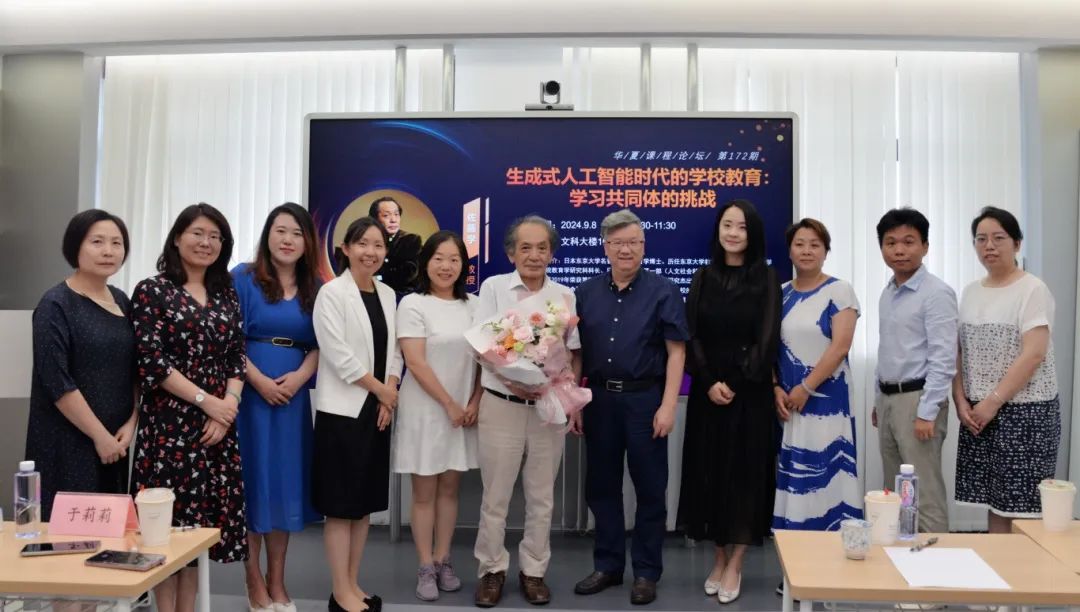
This report was interpreted by Professor Yu Lili, a student of Professor Sato and from the Teacher Education Research Center of Beijing Normal University, and was chaired by Professor Shen Xiaomin of ICI. Cui Yunhuo, Chen Shuangye, Guo Baoxian, Lei Hao, Shi Yuchen, Yang Xiaozhe, Zhou Wenye and other teachers participated in the exchange. Teachers and students inside and outside the school gathered together, and the number of people watching the live broadcast reached 4,055.
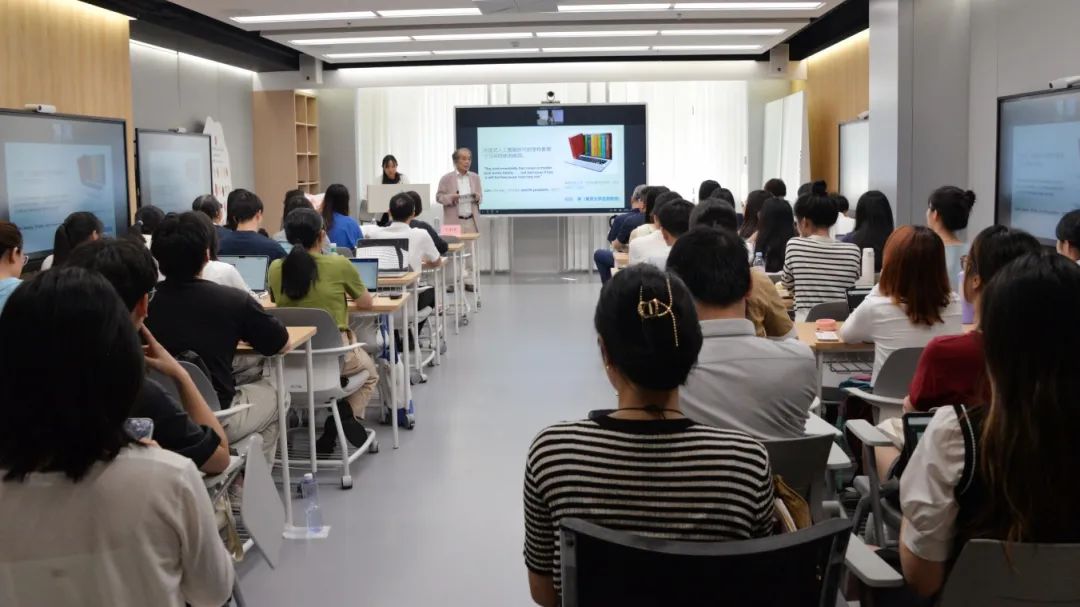
Professor Shen Xiaomin first introduced the educational thoughts and influence of Professor Manabu Sato, and reviewed the nearly half-century friendship between Professor Manabu Sato and Mr. Zhong Qiquan, as well as the 20-year relationship between the ICI and Professor Sato Manabu. She said that this report is also a commemoration of the 20-year relationship.
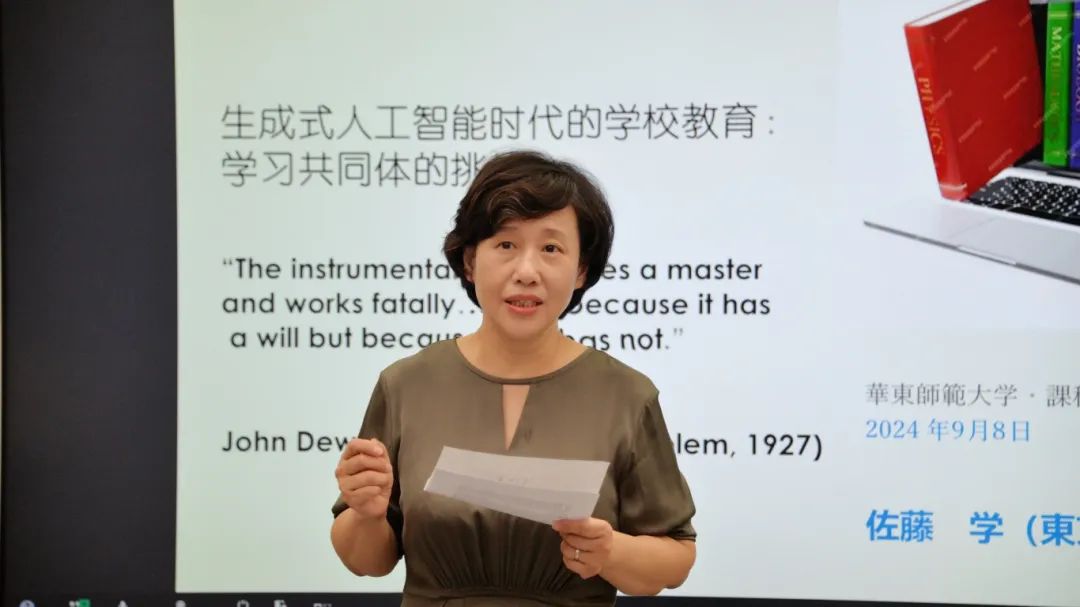
Subsequently, Professor Manabu Sato expounded his views on the characteristics of generative artificial intelligence, the educational effect of computers, and the school education required in the era of generative artificial intelligence, and pointed out the challenges and prospects faced by 21st century classrooms and learning.

scan to get full text/video
At the beginning of the report, Professor Manabu Sato pointed out that generative artificial intelligence is efficient, but its “dialogue” and “thinking” are false. Professor Manabu Sato tested ChatGPT with five questions a year ago, but the answers he got were just artificial intelligence sorting out the Internet information at that time and generated some wrong answers.
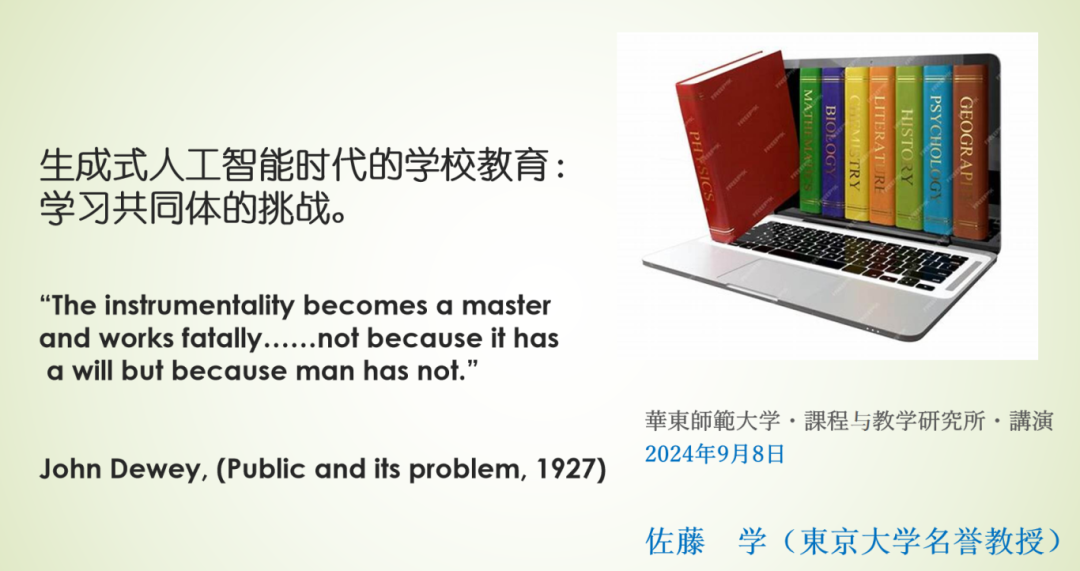
Later, Professor Manabu Sato analyzed the consequences of the information revolution and distinguished the difference between information and knowledge. It is believed that information abstracts subjects (persons), relationships, processes and contexts from knowledge. If all knowledge becomes information, the question "who created the knowledge" will become unimportant, copyright will become ownership, and knowledge will lose its public nature and become commodities and capital, resulting in the loss and equivalence of value.
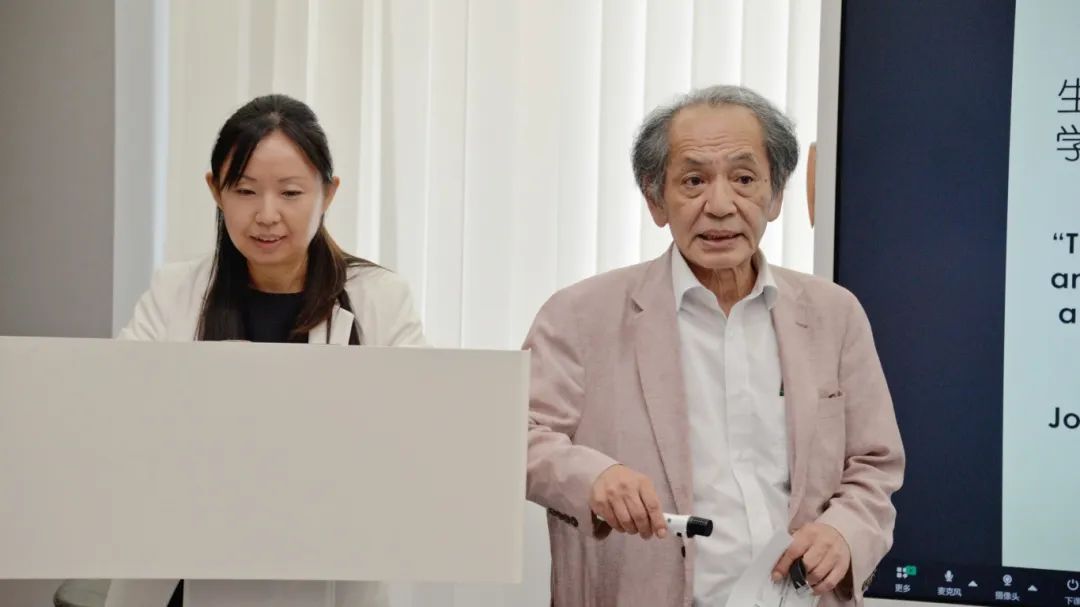
It is worth noting that artificial intelligence, including generative artificial intelligence, will fundamentally change society’s labor market. In the context of the fourth industrial revolution (the industrial revolution of artificial intelligence, robots and the Internet of Things), programmed work will be completed by generative artificial intelligence. If students are trained in traditional ways, it will be difficult for students to adapt to the future society. So what kind of education can adapt to the new society?
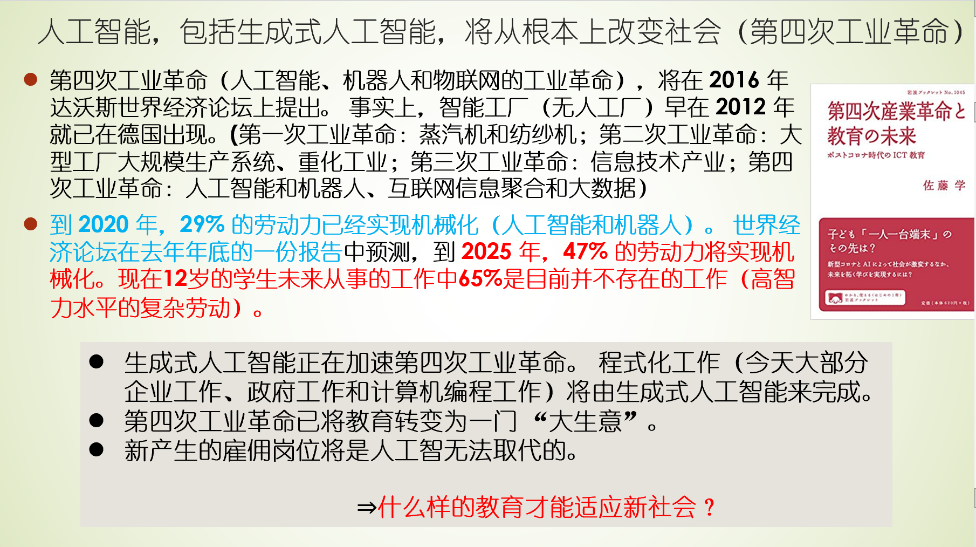
Professor Manabu Sato pointed out that the current way of using computers in the classroom is wrong. First of all, computers are mostly used as teaching tools for teachers rather than as learning tools for students, which makes it difficult to promote students' exploration and collaborative learning. Secondly, computers will affect students’ in-depth thinking and inquiry-based learning. The answer a student gets from a one-minute search on the Internet is superficial. Only by allowing students to engage in in-depth collaborative inquiry can they truly understand knowledge. Thirdly, the use of computers often leads to individualized learning, which is not conducive to the establishment of collaborative relationships between students. This incorrect use leads to an inverse correlation between the time spent using computers in class and academic performance.
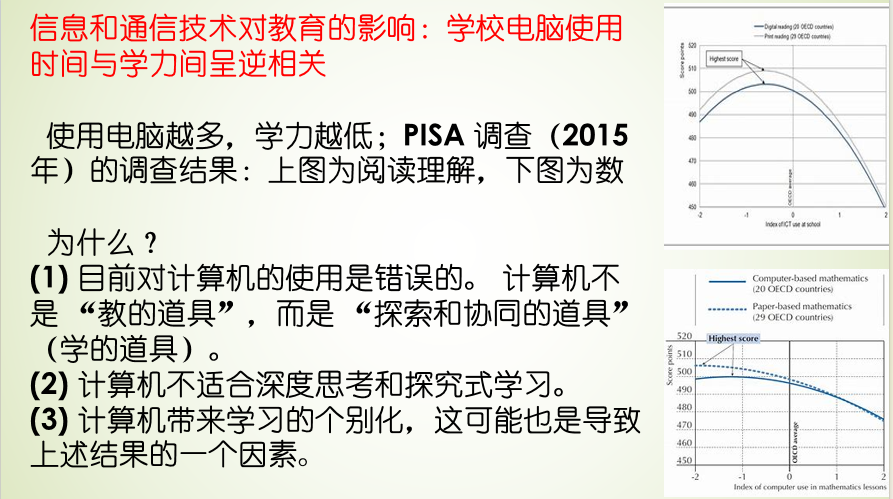
He believes that better educational effects can only be achieved when computers are no longer used as "props for teaching" but as "props for learning" - props for thinking and expression, exploration and collaboration. He suggested treating the computer as "a kind of stationery" and using it naturally and subconsciously. He also pointed out that the combination of "using computers to learn" and "using printed item to learn" is necessary and inevitable in the future. Because the images (imaginations/hallucinations) created by electronic space are different from the images (imagination) evoked by written and printed spaces, there is no medium that evokes the imagination better than the written word.
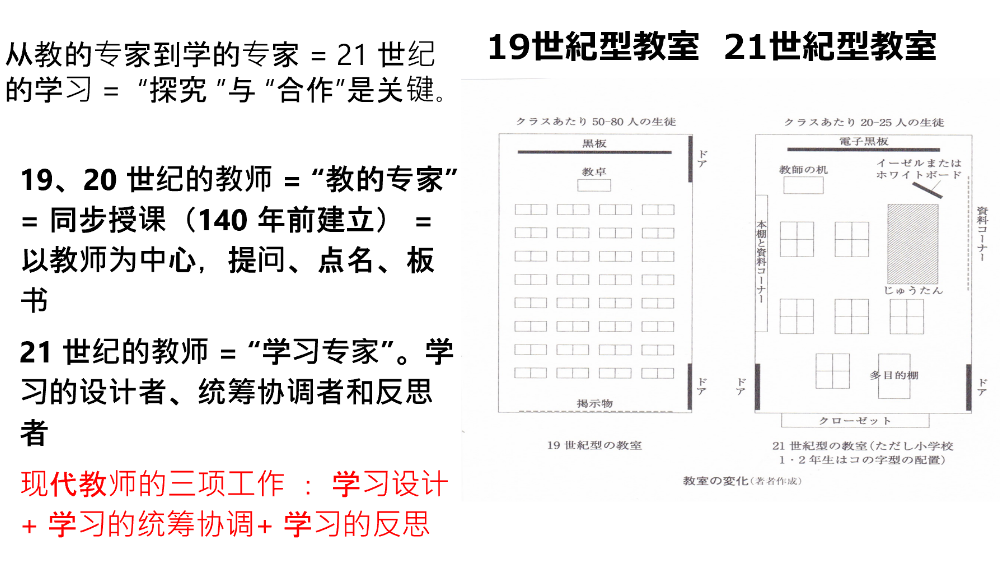
In short, what is needed in the era of generative artificial intelligence is learning characterized by "innovation", "exploration" and "collaboration". To this end, teachers must transform from “teaching experts” to “learning experts” and build a classroom learning community. Teachers should encourage students to actively seek help and conduct "exploratory dialogues" in collaborative learning instead of being limited to "expressive dialogues." "High-quality learning" in a learning community needs to be achieved through "mutual listening relationships", "challenging topics" and "authentic learning". Finally, Professor Manabu Sato hoped that in the process of transforming to "21st century teaching" (learner-centered, inquiry-centered, collaboration-centered), Chinese schools can get rid of the classroom space of the 19th century and transform from teacher-centered teaching.
After the report, Professor Manabu Sato had a lively exchange with the teachers and students present. Regarding the question of returning "teaching" to education raised by Dutch scholar Bista, professor Manabu Sato emphasized that teachers' teaching and students' learning should not be regarded as a binary opposition. Since the teaching tradition in Asia is focused on teachers, it is now necessary to put more emphasis on student learning and change the role of teachers. Regarding how to treat emerging technologies such as brain-computer interfaces, Professor Manabu Sato pointed out that technology will continue to develop, but to what extent it should be applied requires caution. It does not mean that the more technology develops, the happier human life will be. The application of technology will be regulated by human ethical values.
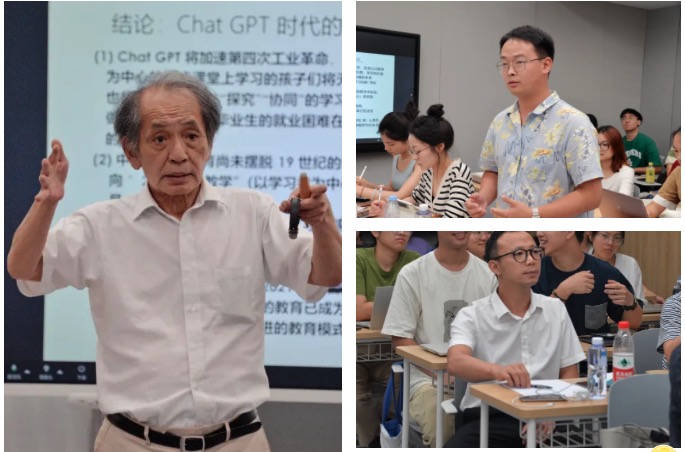
Professor Shen Xiaomin gave a brief summary, emphasizing that we should embrace new technologies, but we must be wary of the use of information technology being controlled by capital, wary of artificial intelligence alienating people from each other, wary of artificial intelligence replacing printed matter, and wary of artificial intelligence's influence on people and happiness it hurts. Rather than discussing how artificial intelligence is applied to education, the more important and underlying issue is how the classroom environment and learning methods change. What we need to pursue is innovation, inquiry and collaborative learning.
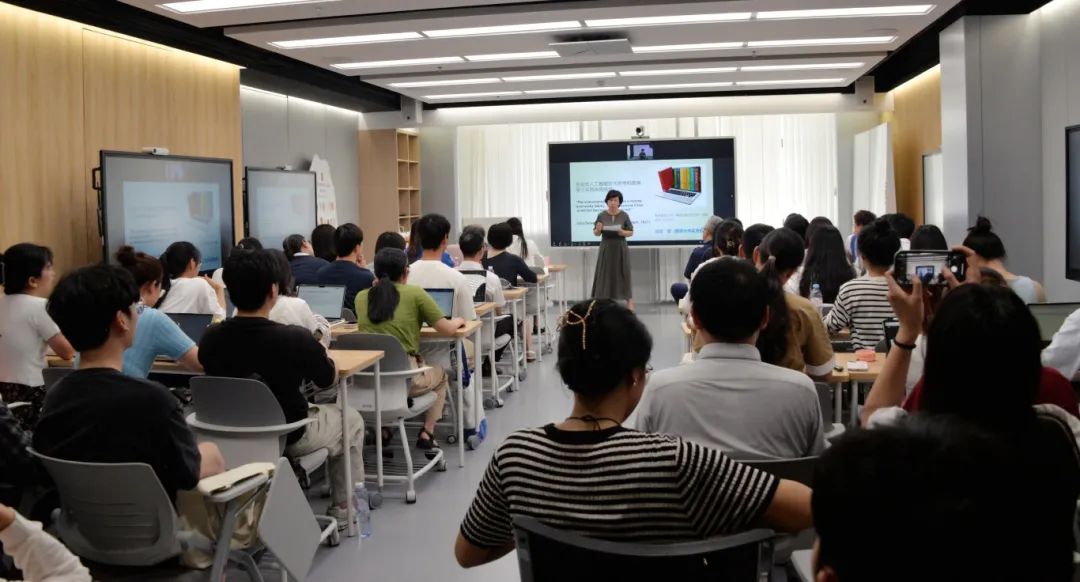
Finally, Director Cui Yunhuo shared his experience after listening. He highly affirmed what Professor Manabu Sato said that technology should not be used as a "prop for teaching" but as a "prop for learning." This learning-centered thinking has a very important impact on the reform of basic education in China.
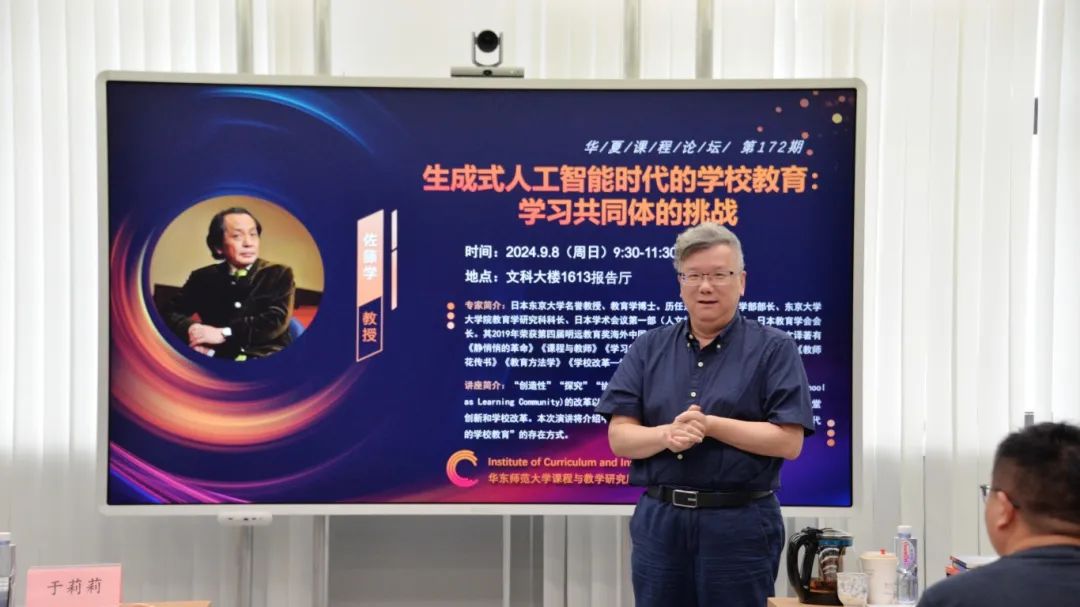
This forum ended successfully in a warm and pleasant atmosphere. We look forward to more opportunities for in-depth exchanges with Professor Manabu Sato in the future to jointly explore the direction of classroom teaching reform based on learning communities in the era of artificial intelligence.
